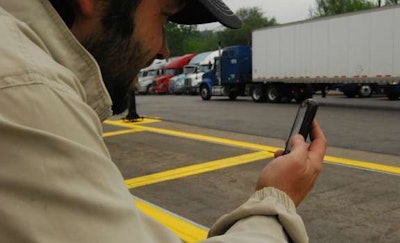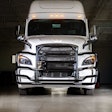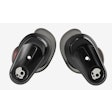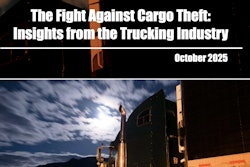Mobile technology has revolutionized truck driving, making drivers more connected than ever before and changing how they work, relax and interact. The five ways it’s happened include:
Connection – Though trucking still comes down to a driver and a truck, the job is a lot less lonely than it used to be, thanks to the smartphone. No other piece of mobile technology has done more for truckers. It offers instant connections with friends, family and work; it’s also a safety device and source of entertainment.
 Smartphones keep truck drivers connected
Smartphones keep truck drivers connected“I don’t have to look for a pay phone on a street corner in the rain or cold, blowing wind. Now, I sit in my truck and make my phone calls,” said Gary Wiggins, a Texas-based owner-operator.
While smart phones keep drivers in touch with family and friends, they’re also business tools.
“I use my phone to call agents about loads. Then I have the agent email the pickup info and delivery info. Then I print that info out on my printer in the truck. After I deliver a load, I call the agent on my cell phone to let them know their load has been delivered. Then I scan the paperwork and BOL and email that to the company that I’m leased to to get paid. I get paid online, I pay my bills online,” Wiggins said.
Navigation – Truckers do still get lost on occasion, but it’s rarer than it used to be, thanks to GPS technology. Satellite navigation, backed by apps that provide up-to-date maps, weather conditions and road construction, makes it easier for drivers to arrive safely and on time.
Entertainment – Laptops, tablets and smartphones put a world of entertainment at the disposal of drivers. They can binge on Netflix in their sleepers, listen to audiobooks and music or play Xbox as well as they could in their living rooms. That makes nights on the road a lot more bearable.
Accountability – Drivers like to say that they could never be cooped up in an office; ironically, their whereabouts are probably more closely tracked than that of many office workers. GPS devices on trucks and e-logs tell employers exactly where drivers are and, in many cases, how they’re driving. Dash cams record video of driving behavior while engine telematics track speed and acceleration, all of it information employers can use to monitor drivers.
Drawbacks — Though there is no doubt that mobile technology has made trucking easier, safer and more profitable, some drivers feel something has been lost along the way.
“Electronics is a double-edged sword,” said William Kolias, an owner-operator in New Hampshire and driving instructor. While electronics has removed a lot of the inefficiency from the industry, it has pushed the human element – the driver – to the limit, he said.
Technology and trucking will remain linked and drivers will continue to adapt mobile technology to make their jobs easier and to remain competitive.











